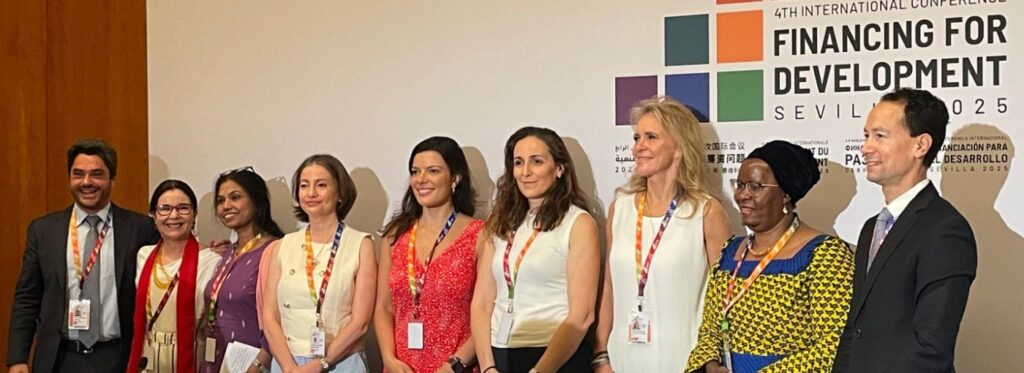photo and copyright Leonard Fäustle
For menstruation’s sake: menstrual care provisions for women flower farm workers in Uganda
By Kalevera E. Imungu, Project Associate Women@Work Campaign for Hivos East Africa.
A lot remains unsaid in the conversation around menstrual management and even less, menstrual care provisions at the workplace. Across sectors, most leadership and planning positions at the workplace are held by men and as such, very little consideration is given to provisions around menstrual care and products for female employees. Within the horticultural sector this presents a particularly big challenge because low wages directly contribute to period poverty: meaning most women view these products as luxuries when in fact they should be regarded as necessities.
With women making up to 80% of the workforce within the sector at the lowest levels and rarely seen within managements, the policies around menstrual provisions within the workplace are either non-existent or barely enforced. Additionally, period stigma and the cultural barriers that exist around discussing any biological process a woman undergoes amplifies the challenge towards addressing it.
This issue was and continues to be gradually tackled within Uganda’s flower farms through lobbying and advocacy done by the women workers as a result of training in women’s leadership and menstrual care and hygiene under the Women@Work Campaign. What initially was a Training of Trainers session under the women’s leadership aspect of the campaign, led by UWEA (Uganda Worker’s Education Association) and in conjunction with AMwA (Akina Mama wa Afrika), was able to lay the foundation for women being their own advocates within the workplace. The leadership training aspect (conducted in 2019) tied in with training on menstrual health and hygiene propelled the women to have conversations with one another and eventually with the leadership of their farms.
Among their requests, which ranged from measures to address sexual harassment to better maternal provisions, the women also led the conversation on menstrual care provisions. Previously some farms would offer women cotton wool which was a poor substitute for proper menstrual products but was the only available provision at the time. Many farms offered nothing at all. The woman proposed that the management provide every woman worker with one pack of sanitary pads per month. After deliberations, one farm’s management offered to give each woman one pad per month for emergency.
While this development was a welcome relief and a win for their lobbying and advocacy efforts, it was still not enough. The access and use of menstrual products is determined by cultural factors, economic factors and environmental factors such as access to water and waste management systems for disposal. Sanitary pads and other non-reusable menstrual products require the presence of proper waste disposal systems. Unfortunately these provisions as well did not exist in many farms and thus led to poor disposal of the sanitary pads and this posed a great challenge to management and the women alike.
In an unfortunate turn of events, early 2020 saw the emergence of the Coronavirus pandemic and the flower sector was one of the hardest hit. The ripple effects of this were numerous including cut wages and in some cases, termination of worker’s contracts. This reduced income meant many women could not afford any menstrual products as food and other basic necessities took center stage. Many women who work in the flower sector are the heads of single headed homes and double up as bread winners and caregivers. The demands on women’s time and resources is already great and coupled with the dynamics of the pandemic and containments measures effected, matters like wellness and menstrual care were a distant feature on their priority lists.
To respond to this crisis, UWEA with the support of Hivos organized distribution of reusable pads to women workers in seven farms in September 2020. Each woman received a packet of 4 reusable pads and they were shown how to use, store and clean them. This move was welcomed both by women and management. Reusable pads can last up to a year and thus address the cost implication of having to buy disposable pads. They also need not to be disposed after every use and can be used comfortably anywhere. The women also reported finding the pads comfortable and were not worried about any incidents or staining that were common with the use of other materials such as cotton. This dignified feminist crisis response was able to offer a medium term solution to a persistent problem.
The introduction of menstrual care provisions by employers especially in industries that are supported by casual or low-skilled labor from economically disadvantaged communities should be considered a mandatory responsibility. The flower industry amongst many others falls firmly within these criteria and providing reusable menstrual pads in conjunction with ensuring proper waste management for disposal of non-reusable menstrual products is just a bare minimum step towards ensuring the dignity and comfort of the majority of their workers is taken into account. This can be done through ongoing training, lobbying and advocacy for and by the women. At a national level these conversations can lead to effective policy provisions that address the burden of period stigma and period poverty through proper structure and resourcing. The case for dignified menstruation requires continuous effort from all stakeholders; employees, employers, civil society and government alike.








